
Scientists Just Discovered an “Off Switch” for Cholesterol And It Could Save Millions of Lives
What If a Tiny Enzyme Could Rewire Your Risk of Heart Disease, Diabetes, and Cancer?
What if the key to preventing heart disease, diabetes, and even certain cancers wasn’t hiding in your diet, your DNA, or your exercise routine—but inside a microscopic immune system switch you’ve never heard of?
For decades, managing cholesterol has been a numbers game: lower your LDL (“bad” cholesterol), raise your HDL (“good” cholesterol), pop your statins, and hope for the best. Yet despite billions spent on medications and public health campaigns, cardiovascular disease remains the world’s deadliest condition, claiming nearly 18 million lives annually. The conventional wisdom is simple: cholesterol clogs arteries, so the less you have, the better. But what if we’ve been asking the wrong question all along?
What if the issue isn’t how much cholesterol we have, but what our immune system does with it—especially during chronic inflammation?
In a groundbreaking discovery, scientists have identified a molecular "off switch" buried deep in the immune system that may be responsible for why cholesterol spirals out of control under inflammatory stress. More than a biochemical curiosity, this tiny enzyme—known as IDO1—may hold the key to transforming how we treat heart disease and other inflammation-linked illnesses at their core.
Why This Discovery Could Be a Game-Changer
Cholesterol has long been cast as the dietary villain: something to be lowered, avoided, and managed with medications like statins. But millions of people who eat healthily, exercise consistently, and even take their prescriptions still develop heart disease, type 2 diabetes, and dementia. Clearly, something more fundamental is going wrong—something happening at the cellular level that standard treatments aren’t addressing.
Enter IDO1 (indoleamine 2,3-dioxygenase 1), an enzyme that until recently flew under the radar. Researchers at the University of Texas at Arlington have uncovered its surprising role as a molecular “kill switch” that disables the body’s ability to process cholesterol during inflammation. In essence, IDO1 transforms a normal immune response into a long-term metabolic malfunction.
The key players here are macrophages—immune cells that act like the body’s janitors. Normally, these cells sweep excess cholesterol out of tissues and blood vessels. But when inflammation persists, something shifts: IDO1 becomes overactive, producing a byproduct called kynurenine that shuts down the receptors macrophages use to clean up cholesterol.
Instead of doing their job, the macrophages turn into foam cells—bloated, fat-laden versions of themselves that accumulate into dangerous plaques inside artery walls. These plaques are what ultimately lead to heart attacks, strokes, and vascular disease.
Even more striking? In lab experiments, scientists found that when they blocked IDO1—even in an environment filled with inflammation—macrophages resumed their normal cholesterol-clearing role. The cholesterol began to flow again, and inflammatory markers fell significantly.
Rethinking the Root Causes of Chronic Disease
This discovery doesn’t just change how we view cholesterol—it challenges how we think about chronic disease itself.
High cholesterol, insulin resistance, even cancer growth and Alzheimer’s—all may share a common root in the body’s inflammatory immune response. Rather than being separate conditions, these diseases may reflect different symptoms of one deeper dysfunction: immune imbalance driven by enzymes like IDO1.
The implications are enormous. For decades, medicine has tried to tackle these conditions one at a time. But if a single enzyme like IDO1 is involved in cholesterol dysfunction, insulin resistance, and even neurological damage, then targeting it could offer a unified strategy for treating multiple chronic illnesses simultaneously.
Dr. Subhrangsu S. Mandal, the lead researcher, explains:
“We found that by blocking the enzyme IDO1, we can better control inflammation in macrophages and restore their ability to process cholesterol properly. This could revolutionize how we approach not just heart disease, but a wide range of inflammation-related conditions.”
How IDO1 Disrupts the Body’s Balance—And How We Might Stop It

Under normal circumstances, IDO1 helps regulate the immune system by breaking down the amino acid tryptophan. But in the context of chronic inflammation—caused by stress, infection, poor diet, or autoimmune conditions—IDO1 goes into overdrive. It floods the system with kynurenine, which disables key cholesterol-processing receptors, including SR-BI.
At the cellular level, the result is devastating. Macrophages stop absorbing cholesterol and begin hoarding it. They turn into foam cells, accumulate in arterial walls, and become the seeds of atherosclerosis.
But scientists discovered that when IDO1 is blocked in lab experiments:
-
Macrophages begin reabsorbing cholesterol, even under inflammatory stress
-
Inflammatory markers decrease
-
The immune system begins to normalize
More importantly, the effect was amplified when IDO1 blockers were paired with inhibitors of nitric oxide synthase (NOS)—another inflammatory enzyme. The result: a potential two-pronged treatment that calms inflammation while restoring cholesterol metabolism.
What Blocking IDO1 Could Mean for You

Imagine a treatment that doesn’t just push your cholesterol numbers down but actually restores your body’s natural ability to regulate cholesterol—even when inflammation is present.
Statins work by reducing cholesterol production in the liver. But they don’t resolve the root cause of why cholesterol accumulates in the first place. IDO1 inhibitors, by contrast, tackle the upstream dysfunction: immune imbalance triggered by chronic inflammation.
That makes this approach potentially game-changing for:
-
People who can’t tolerate statins due to muscle pain or other side effects
-
Patients with autoimmune conditions like lupus or rheumatoid arthritis, where inflammation drives heart disease risk
-
Those with "normal" cholesterol but high inflammation and cardiovascular risk
-
Anyone battling multiple chronic conditions linked by inflammation: type 2 diabetes, Alzheimer’s, or even cancer
The ripple effect of targeting IDO1 could be felt across almost every chronic illness rooted in immune dysfunction.
From Breakthrough to Bedside: The Path Forward

Of course, developing a drug that safely inhibits IDO1 is complex. This enzyme isn’t purely harmful—it also helps regulate immune tolerance and prevent overreactions. Blocking it indiscriminately could cause unintended consequences.
That’s why early trials are focusing on:
-
Safety and side effect profiles in healthy volunteers
-
Finding optimal doses that preserve IDO1’s protective roles while halting its harmful effects
-
Identifying biomarkers (like kynurenine levels) to determine which patients will benefit most
-
Testing combination approaches with NOS inhibitors or anti-inflammatory agents
If successful, these treatments could reach patients in the coming years—offering a more targeted, personalized, and effective way to manage disease at the source.
What You Can Do Right Now While Science Catches Up
IDO1 inhibitors aren’t on the market yet—but you can already take steps to reduce the inflammation that activates it in the first place. Lifestyle choices directly impact your immune function and cholesterol metabolism. Here’s what you can do today:
1. Eat for Cellular Health
-
Prioritize soluble fiber (oats, beans, flaxseed) to help remove cholesterol via digestion
-
Incorporate omega-3-rich foods like walnuts and chia to reduce inflammation
-
Choose healthy fats (olive oil, avocado) to support HDL and reduce LDL oxidation
-
Cut back on processed foods and added sugars, which spike inflammatory markers
2. Move Your Body Consistently
-
Just 30 minutes of moderate aerobic activity (walking, swimming, cycling) can improve cholesterol ratios and reduce immune stress
-
Strength training also improves insulin sensitivity and reduces LDL
-
Focus on regularity, not perfection—what matters is moving often, not intensely
3. Stress Less, Heal More
-
Chronic stress raises cortisol, which worsens inflammation and disrupts lipid metabolism
-
Practice mindfulness, deep breathing, or even short nature walks daily
-
Consider adaptogenic herbs with guidance from a health provider
4. Sleep Like Your Life Depends on It (Because It Does)
-
Poor sleep is linked to higher LDL and systemic inflammation
-
Aim for 7–9 hours and a consistent bedtime routine to optimize repair and detox pathways
5. Ask Smarter Questions at Your Next Checkup
-
Beyond cholesterol, inquire about inflammatory markers like CRP or IL-6
-
Ask for advanced lipid testing (like ApoB or LDL particle size) for more insight
-
Share any history of chronic inflammation or autoimmune symptoms
A New Era of Heart Health: Rooted in Immune Balance, Not Just Numbers
The discovery of IDO1 as a molecular off-switch for cholesterol metabolism may signal a new era in chronic disease prevention—one that shifts our focus from managing symptoms to restoring biological balance.
Cholesterol is no longer just a dietary issue. It’s a marker of deeper immune communication. And when that system breaks down—whether due to inflammation, infection, or stress—the consequences ripple across the entire body.
But this insight also brings hope. By understanding how inflammation hijacks cellular functions like cholesterol processing, researchers are developing tools to reboot the system—not just suppress its alarms.
In time, IDO1-targeting treatments may help millions of people manage not just heart disease, but also the wider web of conditions connected by chronic inflammation.
Until then, we’re not powerless. Every anti-inflammatory choice you make—every whole meal, restful night, or mindful breath—is a small but powerful step toward healing the cellular connections that keep you well.
The future of medicine may be molecular, but the future of health? That’s still deeply human.
News in the same category


Former NASA boss makes heartbreaking admission about the future of US space travel

Why You Should Disconnect Your WiFi at Night And Sleep With Your Phone on Airplane Mode in Another Room
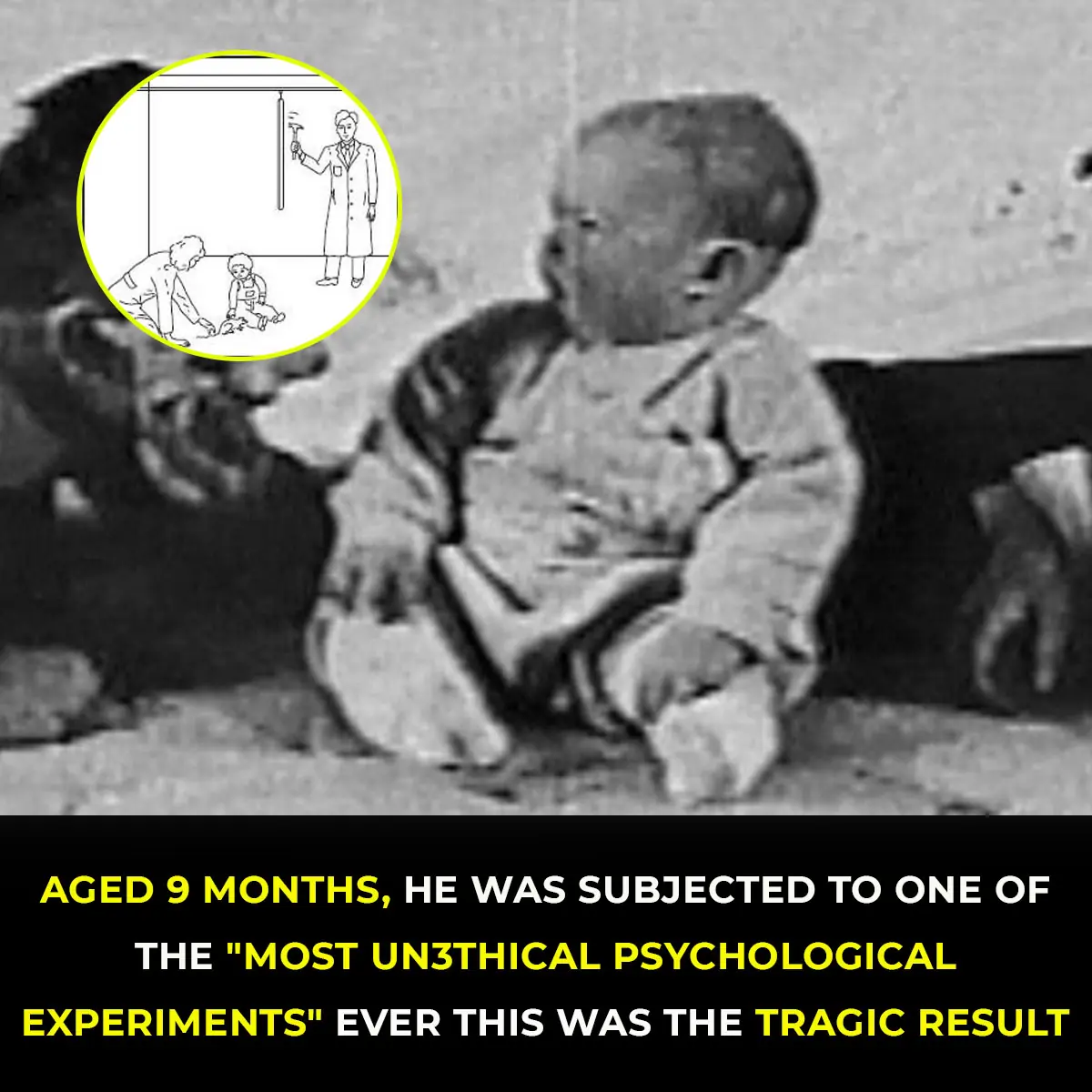
The Heartbreaking Fate Of ‘Little Albert’: Child Subject Of Historic Study Died At Just Six

Farmer Plants 1,000 Oak Trees to Create Memorial for Late Wife

TV Star Claps Back at Trolls Over Her Māori Face Tattoo

Insane amount of money viral 'Storm Area 51' stunt cost the US military

Scientists explain 'puzzling blob' heading straight for New York City that's hidden 200 kilometers below our feet

Inside the Life of Australia’s Largest Clan: The Bonell Family

Guy Mocked for Dating 252-lb Woman

Free download offered to PlayStation gamers as way to 'make amends'

CelebrityTop FBI Official Makes Chilling Claim About Epstein Investigation

Hacker with 30 years experience reveals the one thing we need to be worried about in the future

Man who spent 10,000 Bitcoin on two pizzas in 2010 could've been eye-wateringly well off today

T3rrifying Moment Killer Orca Approached Viewing Window Holding Dead SeaWorld Trainer

Couple with Down Syndrome Choose to Have Children, Sparking Debate

World's Oldest Newborn: Baby Born After Being Frozen for 30 Years
The embryo the Pierces adopted was originally created through in vitro fertilization (IVF) back in 1994, making it older than many of today’s prospective parents themselves, according to MIT Technology Review.
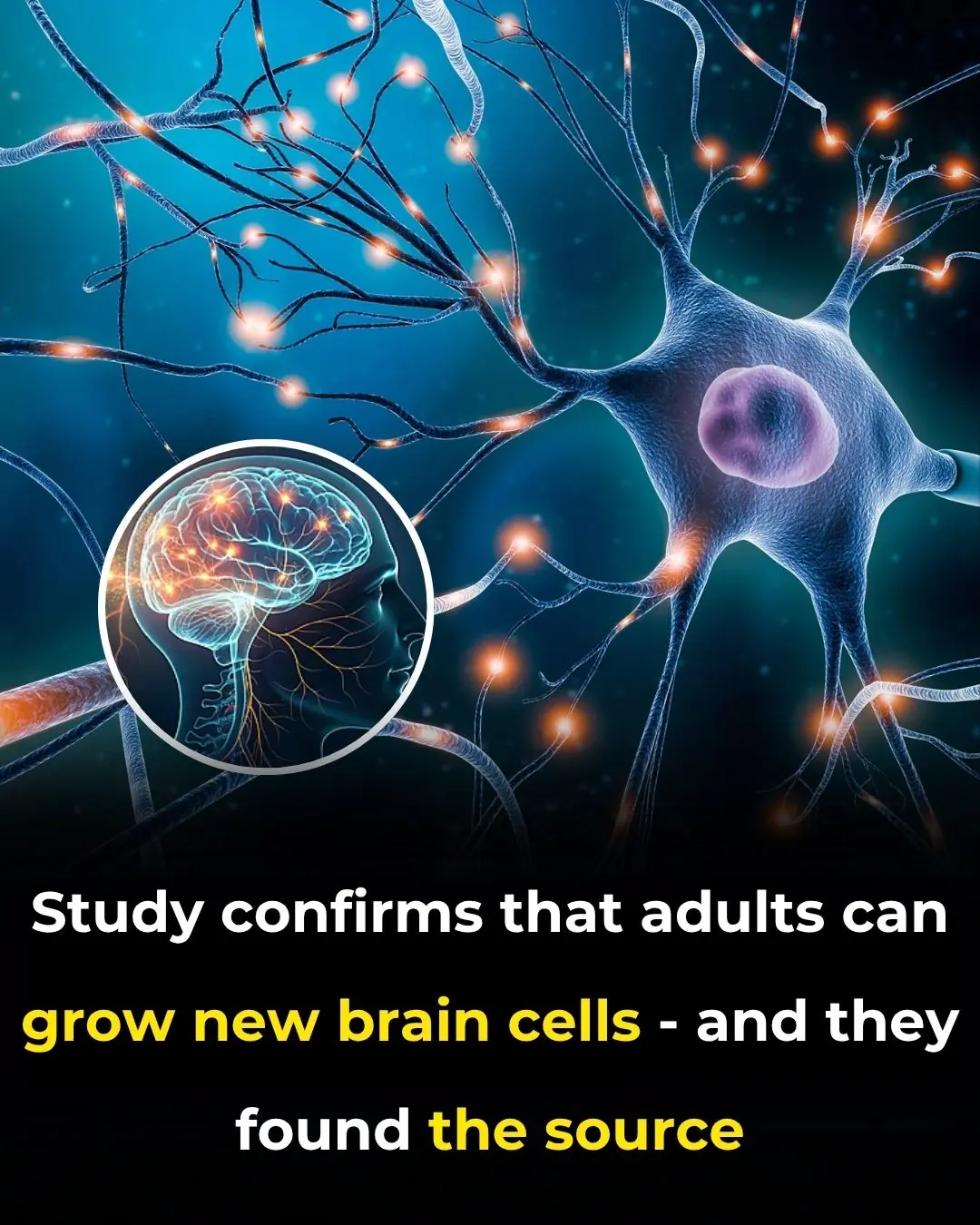
Study Shows Men Are Twice as Likely to Die from ‘Broken Heart Syndrome’ Than Women – Here’s Why

Scientists just found a breast cancer-killing molecule in scorpion venom
News Post

9 Chilling Stories of Third Man Syndrome: When an Unseen Presence Aided Survival in Disasters
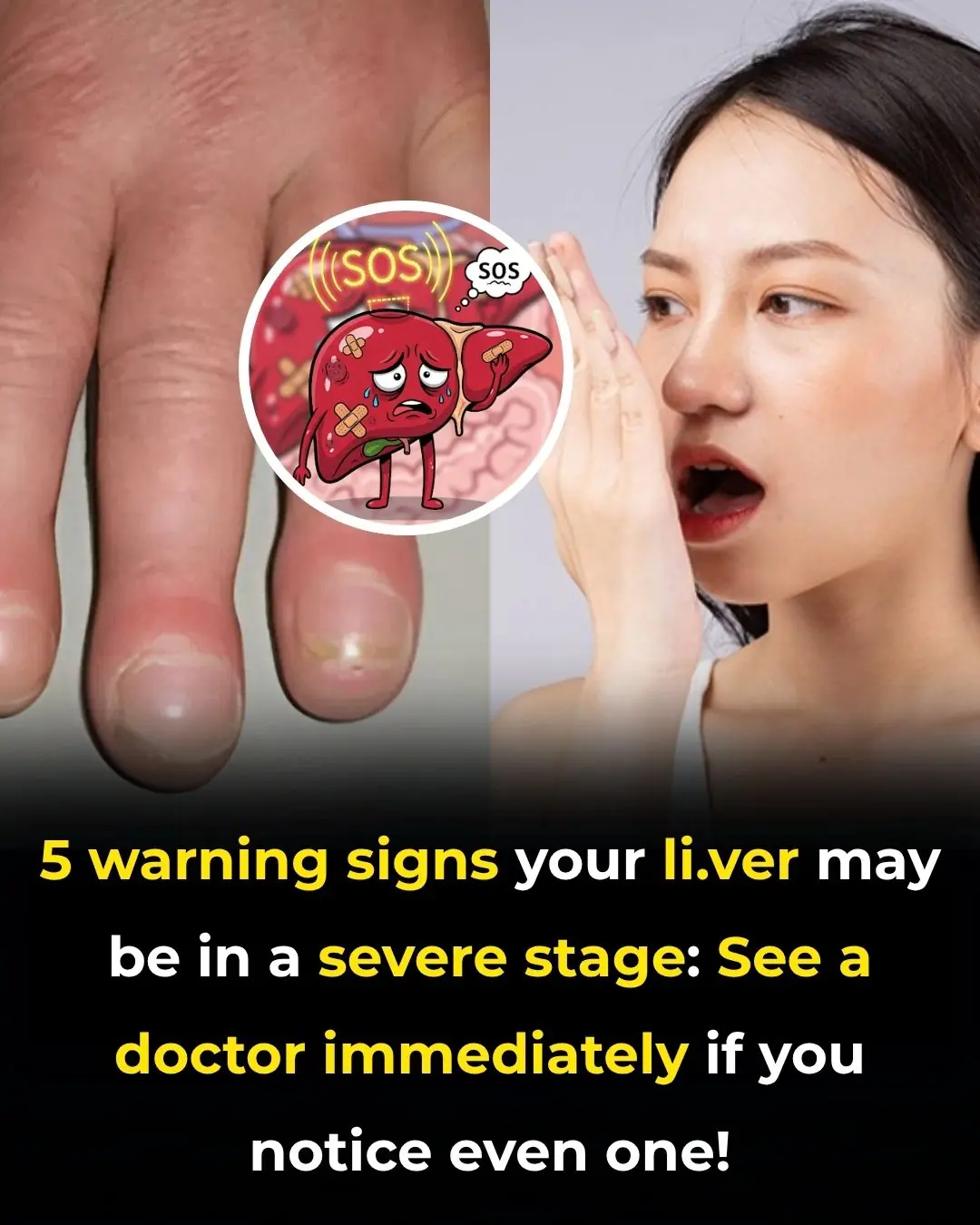
Bruising Easily? Itchy Skin? 5 Hidden Signs of Liver Damage You Might Be Overlooking

I Was Shamed for Being a Single Mom at My Sister’s Baby Shower — Then My 9-Year-Old Son Silenced the Room with a Letter

9-Year-Old Boy Whispered “Daddy, I’m so tired!” and Didn’t Wake Up Again

Proven Health Benefits of Turmeric and Honey (Golden Honey) – Evidence Based
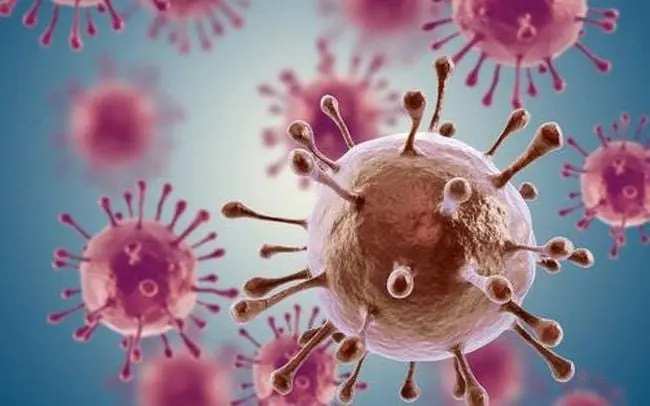
The 20 Most Potent Cancer-Fighting Foods Hiding in Plain Sight

You’re Drinking Water Every Day but This One Mistake Is Costing You

If Your Partner’s Breath Is Brutal, Just Make This One-Ingredient Fix This Morning

People are just realizing insane coincidence that links The Matrix and 9/11 tragedy

Former NASA boss makes heartbreaking admission about the future of US space travel

7 signs of cancer in the morning when waking up without knowing

From Suspension to a Second Chance: How One Principal Changed a Life Forever.

What Is the Shark Fin on Cars?

Why Does My Heart Hurt? Common Reasons For Heart or Chest Pain
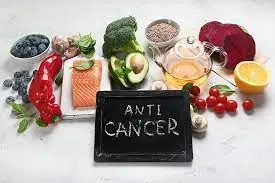
The Anti-Cancer Diet: Cancer Fighting Foods to Help Prevent Cancer (Evidence Based)

Coconut Water: Is It Good for You, Nutrition, Benefits, Side Effects (Science Based)

A Small Thing Can Be a Big Thing

Mark Harmon: The Quiet Force Behind One of TV’s Greatest Legacies.

My Dad Took Credit for Paying for My Wedding During His Toast – but It Was My Stepfather Who Paid for Everything
